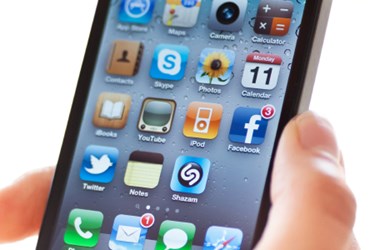Apple Prepares Healthkit Rollout

By Christine Kern, contributing writer

Apple is in the midst of planning the rollout of Healthkit, but the process is complicated by a tangled regulatory web.
Apple Inc has been talking to health providers at Mount Sinai, the Cleveland Clinic, and Johns Hopkins regarding its new "HealthKit" service, according to Reuters. They also have been in conversation with Allscripts, a competitor to electronic health records provider Epic Systems.
While the outcome of the talks is still uncertain, the discussions underscore Apple’s dedication to making health data – such as blood pressure, pulse, and weight – available for consumers and health providers to view in one place.
Currently, this data is being collected by thousands of third-party healthcare software applications and medical devices, but it isn't centrally stored. Apple also hopes physicians will use this data to better monitor patients between visits – with the patient's consent — so the doctors can make better diagnostic and treatment decisions.
Apple explains, “HealthKit allows apps that provide health and fitness services to share their data with the new Health app and with each other. A user’s health information is stored in a centralized and secure location and the user decides which data should be shared with your app.”
Apple has not divulged much specific detail on HealthKit, which is expected to be incorporated into the iPhone 6. But Apple intends HealthKit to become a lynchpin in a broader push into mobile healthcare – a fertile field that rivals Google and Samsung are also exploring.
Apple states, “HealthKit works with third-party apps and gives you control over the information you share. Health & Fitness Apps do not work standalone, Apple promises. HealthKit is a central platform for health information. Apple has been working with the Mayo Clinic and Nike to develop this, but also with many other clinics. One of the clinics is Radboud University Medical Center in the list, the University Hospital in Nijmegen. Apple is also working with health care providers to integrate into other applications.”
Reuters also reports dozens of major health systems that use Epic's software will soon be able to integrate health and fitness data from HealthKit into Epic's personal health record, called MyChart, according to a person briefed by Apple. And Kaiser Permanente reportedly is currently piloting a number of mobile apps that leverage HealthKit and is expected to reach out to Apple to discuss a more formal partnership.
"Apple is going into this space with a data play," said Forrester Research's health care analyst Skip Snow. "They want to be a hub of health data."
Yet privacy and regulatory requirements and outdated IT systems promise to create large obstacles to some implementations with Healthkit, according to Morgan Reed, executive director of ACT, a Washington-based organization that represents mobile app developers.
HealthKit relies on the ability of users to share data. But depending on how that data is used, its partners – and potentially even Apple - may be subject to the requirements of the Health Insurance Portability and Accountability Act, or HIPAA.
HIPAA protects personally-identifiable health information – such as a medical report or hospital bill – stored or transmitted by a "covered entity," like a care provider or health plan. Patient-generated information from a mobile app, for instance, has to be protected once the data is given to a covered entity or its agent.
